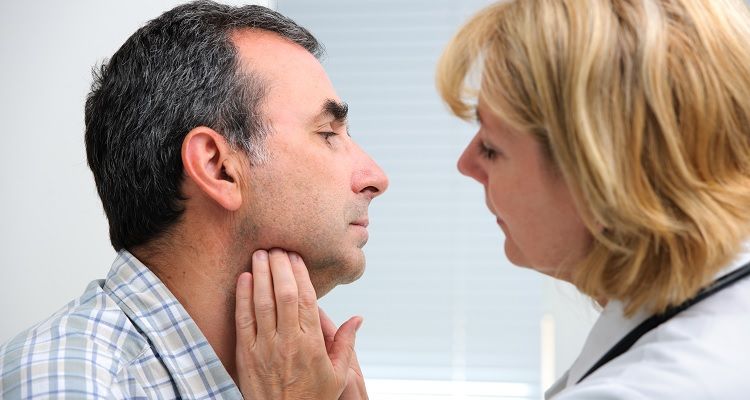What Are The Benefits of a Career as a Family Nurse Practitioner?

Family Nurse Practitioners (FNPs) fill a variety of healthcare roles, from treating minor aches to managing teams of nurses, in some cases as a sole healthcare provider assuming responsibilities once held by primary care physicians.
The role of FNPs has expanded in the past decade and, with continual changes to healthcare legislation, is expected to grow exponentially in the next 20 years. In locations where physician shortages are prevalent, a growing number of FNPs will be opening private practices, working in hospitals, and overseeing health clinics.
Nurses who already hold a Master’s Degree in Nursing (MSN) and want to develop another skill set can pursue a post-master’s certificate as an FNP to provide patients with medical services across a lifetime. Advanced Practice Registered Nurses (APRNs) and Doctors of Nursing Practice (DNPs) who already have an MSN with a specialty, such as forensic nursing or nursing education, are also eligible to pursue an FNP certificate.
The FNP program at Duquesne University is taught predominately online, allowing APRNs to continue working while expanding their nursing career. The school’s award-winning faculty is committed to ensuring practicing nurses have a flexible and formative environment for their ongoing studies.
How to Earn FNP Certification?
Nurses who seek a certificate in FNP have a keen interest in primary care practice and enjoy direct patient contact. The education component of the certificate includes classes in healthcare policy, clinical leadership, and public health. At Duquesne University, FNP students must complete prerequisite classes and 33 credit hours focused on FNP coursework to earn the certificate.
In addition to coursework, FNP students must undertake clinical and practicum work. Duquesne University students are expected to attend two on-campus meetings, which allows faculty to interact personally with students while maintaining the school’s prestigious Commission on Collegiate Nursing Education (CCNE*) accreditation. Duquesne students have up to five years to complete the certificate program.
Upon successful completion of the program, graduates are eligible to take the American Association of Nurse Practitioners Certification Program (AANPCP) exam or the American Nurses Credentialing Center (ANCC) Family Nurse Practitioner exam. After completing the exam successfully, graduates are eligible for Certified Registered Nurse Practitioner (CRNP) licensure. Graduates are also required to register with their local state board of nursing.
The leading programs prepare APRNs with the following competencies:
- Advanced clinical judgment
- Leadership skills to create a compassionate and caring environment
- Advocacy abilities for collaborative and interdisciplinary approaches to healthcare
- Evidence-based nursing
- Eagerness to foster excellence in healthcare delivery
- Culturally competent practices to enhance positive healthcare outcomes
- Ethical decision making
- Commitment to learning, for self and healthcare consumers
Family Nurse Practitioner (FNP) Career Outlook
In the coming years, a shortage of nurses and primary care physicians as a result of the aging population and changes to healthcare policies is expected to shake the foundation of healthcare in the United States. Experienced nurses and doctors are retiring in rapid numbers.
The Association of American Medical Colleges (AAMC) found there would be a shortage of up to 105,000 physicians by 2030. About a quarter of them will be primary-care physicians. The American Association of Colleges of Nursing (AACN) also reported a potential shortfall more than one million nurses by 2022. The shortages are aligned with the FNP certificate program, allowing trained APRNs to fill in where needed the most. At the same time, the Affordable Care Act (ACA) has increased the demand for access to healthcare providers.
An FNP degree allows APRNs to provide medical care from infant to adult, including women’s health such as preconception and pregnancy. In many states, FNPs are permitted to practice autonomously, without direct supervision from a physician and are legally authorized to prescribe medications and order diagnostic tests. In general, FNPs examine health histories, perform physical exams, establish therapeutic care plans, order and interpret lab tests, provide patient education, and assist in research studies. Often, FNPs co-manage their patients’ chronic conditions in coordination with physicians.
Researchers have discovered that a growing number of patients find working with an FNP to be as good or better than working with a physician. Many patients prefer collaborating with FNPs to physicians because FNPs provide personalized care and “spend more time with patients,” the National Governors Association said in its “The Role of Nurse Practitioners in Meeting Increasing Demand for Primary Care” study.
Family Nurse Practitioner Salary and Earning Potential
The U.S. Bureau of Labor Statistics found the annual average wage for FNPs is about $100,000 a year. Most FNPs work in doctor’s offices, hospitals, outpatient clinics, colleges and universities, and offices of other healthcare providers like chiropractors and optometrists. APRNs who earn the highest annual salaries are those who work in hospital settings, a 2016 Medscape survey found.
“APRNs are required to have at least a master’s degree, and many clinical APRNs are now pursuing the doctor of nursing practice degree. NPs with a doctorate earned significantly more ($110,000) than those with a master’s degree ($102,000),” the survey found.
There are more than 222,000 nurse practitioners from all fields working across the United States, the American Association of Nurse Practitioners found. Of those, nearly 90 percent specialize in primary care.
Online Family (Individual Across the Lifespan) Nurse Practitioner Certificate
Duquesne University’s online FNP certificate builds on existing skills and prepares advanced nurses for expanded roles as caregivers and leaders. Other MSN certificate programs at the university include nursing education and forensic nursing. Duquesne University’s post-master’s certificate programs are only offered online, providing greater flexibility for working healthcare professionals.
*The baccalaureate degree program in nursing, master’s degree program in nursing, Doctor of Nursing Practice program and the post-graduate APRN certificate program at Duquesne University are accredited by the Commission on Collegiate Nursing Education (http://www.ccneaccreditation.org).
